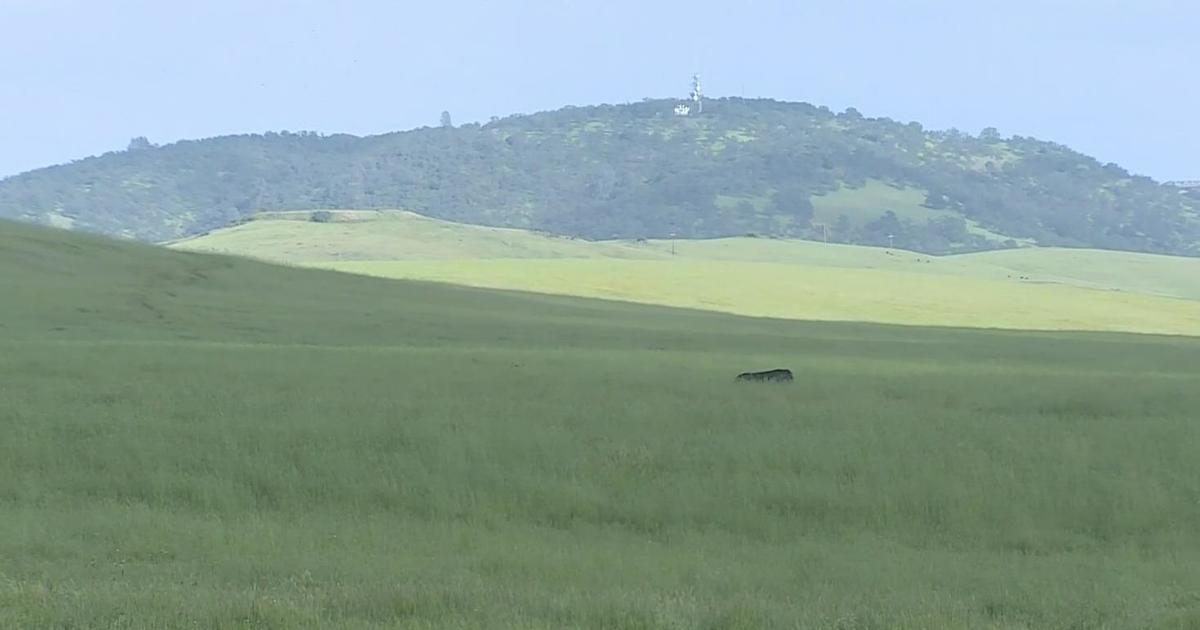US Surpasses 25 Million COVID Cases – Now It's A Race Between Vaccines And Variants
SACRAMENTO (CNN/CBS13) – It took just over a year for the United States to go from one to 25 million coronavirus infections.
That's an average of about 67,934 new infections every day, or an average of one new infection every 1.2 seconds since January 21, 2020.
As infections kept soaring this weekend, so did the death toll. As of Sunday, more than 419,000 people have died from the virus in the United States, according to Johns Hopkins University.
The US death toll could reach 569,000 by May 1, according to the University of Washington's Institute for Health Metrics and Evaluation – even though "42,800 lives will be saved by the projected vaccine rollout."
California on Sunday had surpassed 3.1 million infections over the course of the pandemic and more than 37,000 deaths.
While some states have reported recent dips in their daily COVID numbers, new coronavirus variants have many scientists worried.
"It is, first of all, good news to see that curve bend down a little. We're still at a very high level of infections," said Dr. Ashish Jha, dean of the Brown University School of Public Health.
"But I am very worried about whether we're going to be able to sustain this or not. If we move quickly on vaccinations...then we can keep that curve heading down. But if the variants take hold first, that curve will turn back up. And things will get much worse," he said. "So this is a race. Obviously, I hope we win."
More from CBS Sacramento:
- Agencies Investigating Cause Of Death Of Person Who Died Hours After Receiving Vaccine, Placer Sheriff Says
- PHOTOS: Vlade Divac's Unassuming, Fully Renovated Sacramento Home Hits The Market At $1.6 Million
- 'Scared The Hell Out Of Me': Women Share Disturbing Stories Of Downtown Prowler On The Loose
A coronavirus variant called B.1.1.7, first identified in the United Kingdom, is one of the more concerning strains.
It's been detected in several states, including California.
The CDC has warned this strain appeared to be more easily transmissible and that the US could see "rapid growth" of its spread in early 2021.
A UK report released Friday said there's "a realistic possibility" that B.1.1.7 has a higher death rate than other variants.
"The data is mounting -- and some of it I can't share -- that clearly supports that B.1.1.7 is causing more severe illness and increased death," said Michael Osterholm, director of the Center for Infectious Disease Research and Policy at the University of Minnesota. "Already we know this variant has increased transmission, and so this is more very bad news."
Dr. Anthony Fauci, director of the National Institute of Allergy and Infectious Diseases, said it's certainly possible this strain could be more harmful.
"We need to assume now that what has been circulating dominantly in the UK does have a certain degree of increase in what we call virulence, namely the power of the virus to cause more damage including death," Fauci said told CBS' "Face the Nation" on Sunday.
He noted that the research is still evolving.
"The data that came out was after they had been saying all along that it did not appear to be more deadly, so that's where we got that information," Fauci said.
In the US, Washington state health officials said they found the variant in testing samples in the state.
"We're now in that second half of fighting this pandemic," Washington Secretary of Health Umair A. Shah said Saturday. "It's very important for us to really double down on our efforts to prevent this strain as well as any strain from taking over, because we want to make sure that transmission does not happen in our state and the best way to do that is prevention, prevention, prevention."
The good news? Studies so far suggest vaccines will also protect against the B.1.1.7 variant. And that the same measures that can help prevent coronavirus infections in the past – wearing masks, social distancing and frequent hand washing – also fight against variant strains.



